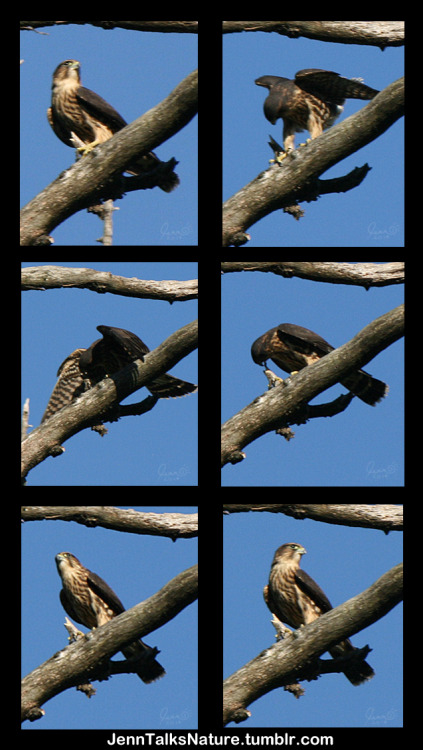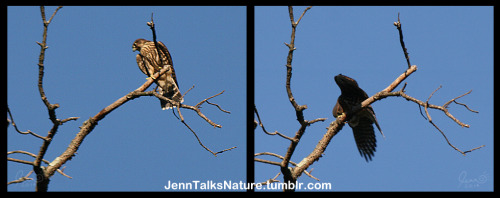I spent a couple hours this evening watching some baby merlins (Falco columbarius). They are a
I spent a couple hours this evening watching some baby merlins (Falco columbarius). They are a small falcon, just a little larger than the American kestrel. They mostly prey on small birds (and the occasional dragonfly). I love the first sentence of All About Birds’ brief description of the merlin, “Merlins are small, fierce falcons that use surprise attacks to bring down small songbirds and shorebirds.” The reason I point this sentence out, is that fledgling/juvenile merlins are anything but surprising, agile, fierce predators. Okay, they may be fierce, but it’s hilarious. Like any other bird they have to learn to get food, and in the case of a predator, to catch prey. This means a lot of learning and a LOT of failure in the process. This evening, the merlins seemed to be missing the “surprise” portion of catching prey, and instead, opted to scream the entire time they flew around or at other birds (listen to the “alarm calls in captivity” on this page to hear roughly the same sound they were making…it’s rather not subtle). As far as I can tell, when they scream at mom and dad, the food their parent is holding is then placed in the baby falcon’s mouth. Now perhaps, the tiny falcon logic at this stage is that maybe begging at the prey will also make it magically placed in it’s open mouth. This is simply a hypothesis. As for the fierce part…I did get to witness one of the juveniles mercilessly attack, maim, and tear apart bits of the tree it was standing on (second and third photo sets). It was gruesome, but I managed to continue taking photos. You will notice in the last three photos of the second photo set, that the juvenile merlin has it’s foot proudly wrapped around it’s prey as to not let it escape. Lucky for these little terrors of the sky, mom and dad are still around right now to share kills and supplement the remainder of any failed hunting efforts of their children. In all seriousness, this is all important in their development as predators. It’s very difficult to be an animal who has to pursue, capture, and kill each meal. The first winter for a raptor is harsh, and mortality rates for a raptor in their first year of life are well over 60% (for some species up to 80% isn’t uncommon). This means the birds who make it through their first winter/year and those who eventually breed are truly the cream of the crop! Here’s to hoping these little guys hone their skills during this summer well enough to make it through their first winter. I’m rooting for you adorable tiny falcons! -- source link
#merlin#falco columbarius#falcon#baby bird#fledgling bird#juvenile bird#raptor



